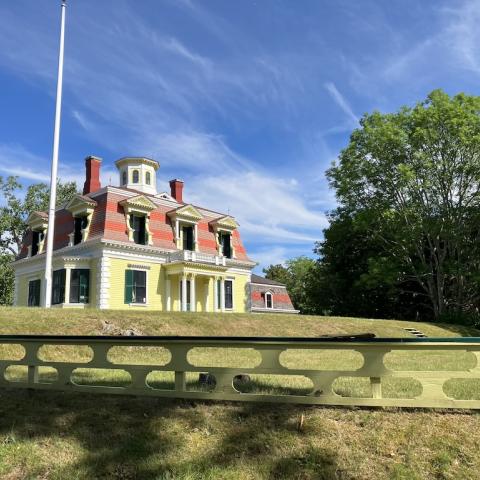Since Cape Cod National Seashore in Massachusetts was established in 1961, a great deal of change has taken place, impacting the seashore at social, economic, and ecological levels. On Tuesday and in the weeks to come, a historian will discuss these changes to spur a community conversation.
On Tuesday at the seashore's Salt Pond Visitor Center, Dr. David Glassberg, a University of Massachusetts historian, will lead a discussion on "The Changing Cape: A Conversation About Protecting Places That Matter in Our Communities." The talk, beginning at 7 p.m., is part of a series of programs the historian is leading.
During the talk, the public is invited to hear and share stories and view contemporary and historical photographs that highlight changes on Cape Cod.
According to Dr. Glassberg, in the half-century since the establishment of Cape Cod National Seashore, there have been dramatic social, economic, and ecological changes on Cape Cod that, in combination, threaten to alter or even obliterate storied landscape features and ways of life on the Outer Cape. Participants at these community conversations will consider and discuss places on Cape Cod that they care about the most, the environmental threats these special places face, and what actions might be taken to protect them for future generations.
In anticipation of these conversations, local residents are sharing their ideas on a Facebook site. Dr. Glassberg plans to lead similar conversations on Wednesday, October 26, from 6:30 to 8 p.m. at Wellfleet Public Library, and on Sunday, November 6, from 2 to 3:30 p.m. at the Provincetown Public Library.
Dr. Glassberg, the founding director of the UMass Amherst Public History Program, is the author of "Sense of History: The Place of the Past in American Life," and a co-author of "People and Places on the Outer Cape: A Landscape Character Study," a report prepared for Cape Cod National Seashore based on a similar series of community conversations on the Outer Cape in 2003.
The project is co-sponsored by Cape Cod National Seashore, the UMass Amherst Public History Program, the Center for Coastal Studies, the Association to Preserve Cape Cod, the Truro Historical Society, Save Truro Seashore, the Eastham Historical Society, the Pilgrim Monument and Provincetown Museum, and Mass Audubon's Wellfleet Bay Wildlife Sanctuary.


 Support Essential Coverage of Essential Places
Support Essential Coverage of Essential Places







Add comment